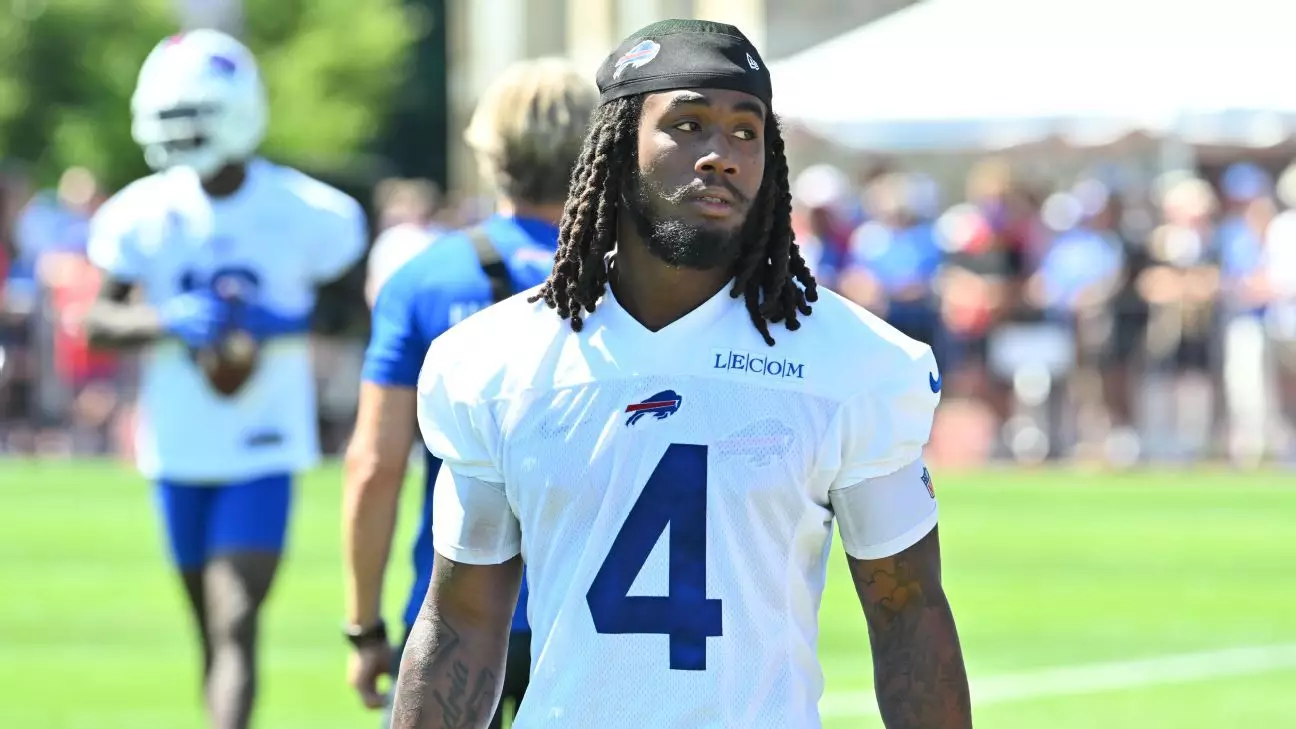In the high-stakes world of the NFL, players often find themselves torn between loyalty to a franchise and the pursuit of fair compensation. James Cook, the promising Buffalo Bills running back, exemplifies this internal struggle. His bold stance on securing a lucrative contract underscores a pivotal shift in athlete mentality: favoring aggressive self-advocacy over passive acceptance. Cook’s public declarations—social media pitches and vocal affirmations—are not mere bravado; rather, they represent a firm belief in a player’s right to define his worth. This attitude challenges traditional team-first mentalities, urging franchises to reconsider how they value offensive weapons in their strategic plans.
By fully participating in training camp despite prior absences during offseason minicamps, Cook demonstrates a pragmatic approach. He balances his desire for a new contract with a professional ethic that prioritizes readiness. It’s noteworthy that Cook views his participation not as an obligation to the franchise alone, but as a personal statement to his teammates, family, and himself. This perspective signals a broader shift in athlete identity—where players see themselves less as interchangeable assets and more as individuals with claims to their value. As more players like Cook stand up for what they believe they deserve, the league’s power dynamics are inevitably realigning.
Contract Negotiations as a Reflection of Player Confidence and Market Reality
The tug-of-war between Cook and the Bills illustrates more than just contract talk; it’s a microcosm of the evolving marketplace for NFL talent. Cook’s assertion that he “deserves” what he’s asking for—reportedly around $15 million annually—places him among the league’s top-paid running backs. This claim is significant, not merely for its monetary implications but because it signals Cook’s belief in his market value, fueled by a productive season and a clear ambition to ascend the ranks of elite RBs.
Yet, the silence from the Bills’ front office, especially GM Brandon Beane’s cautious optimism, reveals the balancing act teams must perform. They want to retain talent, but within the limits of salary caps and long-term planning. It’s telling that Beane emphasizes team cohesion and cap management over individual demands; this reveals a broader strategic philosophy that running backs, despite their importance, are often considered replaceable or less financially critical compared to other positions. However, Cook’s persistent pursuit of a fair deal pushes back against this narrative, highlighting a growing athlete-led movement to redefine positional value.
This scenario raises critical questions: will the NFL’s contractual ecosystem continue to favor owners and organizations, or will players’ collective push for fair market wages shift power toward athletes? Cook’s willingness to publicly advocate for himself, including his social media campaigns, suggests the latter. His confidence in a positive outcome may not be unfounded—manifesting a new era where individual player agency is an essential component of franchise negotiations.
The Broader Implications of Cook’s Stance on the NFL Landscape
Cook’s situation also reverberates beyond contract talks; it challenges the conventional narrative that players should remain silent or defer to team management. His openness about his ambition and his willingness to be vocal are emblematic of a larger cultural shift within professional sports—athletes increasingly act as vocal agents of their own worth, refusing to accept the subordinate roles once prescribed.
Moreover, Cook’s championship of his social media posts exemplifies a strategic shift. Modern athletes leverage platforms as bargaining tools, simultaneously building personal brands and strengthening their leverage in negotiations. His statement—that he has no regrets about his posts—solidifies a stance of unwavering self-confidence. This attitude is reshaping how teams perceive and negotiate with their players, knowing that active engagement and visibility can bolster a player’s bargaining position.
Yet, there are risks involved. Publicly demanding a high salary can sometimes alienate management or stir controversy within the locker room. Still, Cook’s message transcends individual contract talks; it symbolizes a broader declaration that talent and effort are assets deserving of proper recognition and remuneration. His performance on the field, including tying a franchise record for rushing TDs and leading his draft class in rushing yards, bolsters his case—proof that his value is backed by tangible results.
Cook’s approach signifies a vital evolution—a push toward valuing athletes not just as commodities but as individuals wielding influence and demanding respect. His journey underscores an essential truth: in the complex ecosystem of professional sports, confidence, advocacy, and courage can be the catalysts for meaningful change.

